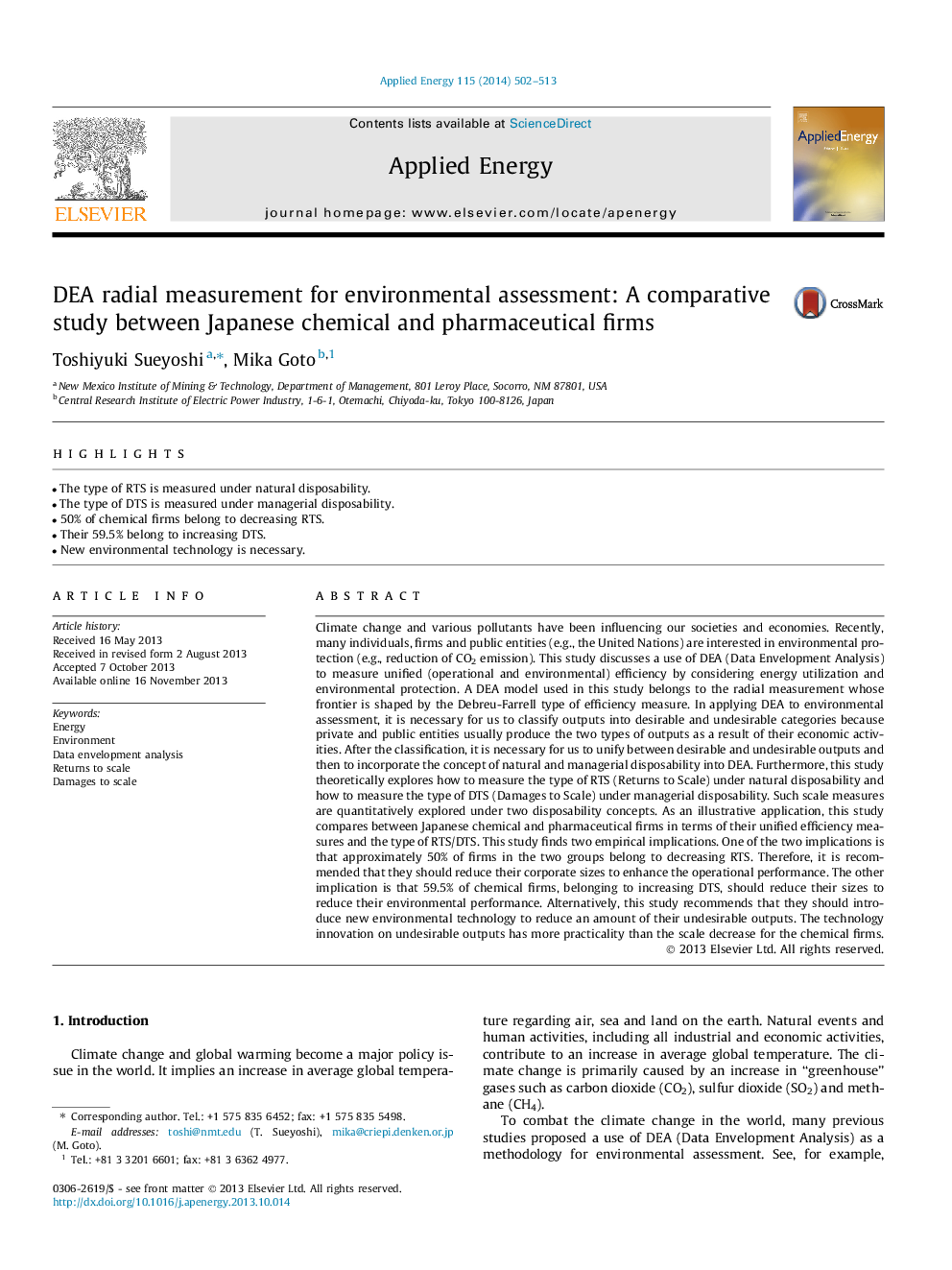| کد مقاله | کد نشریه | سال انتشار | مقاله انگلیسی | نسخه تمام متن |
|---|---|---|---|---|
| 6691524 | 501909 | 2014 | 12 صفحه PDF | دانلود رایگان |
عنوان انگلیسی مقاله ISI
DEA radial measurement for environmental assessment: A comparative study between Japanese chemical and pharmaceutical firms
دانلود مقاله + سفارش ترجمه
دانلود مقاله ISI انگلیسی
رایگان برای ایرانیان
کلمات کلیدی
موضوعات مرتبط
مهندسی و علوم پایه
مهندسی انرژی
مهندسی انرژی و فناوری های برق
پیش نمایش صفحه اول مقاله

چکیده انگلیسی
Climate change and various pollutants have been influencing our societies and economies. Recently, many individuals, firms and public entities (e.g., the United Nations) are interested in environmental protection (e.g., reduction of CO2 emission). This study discusses a use of DEA (Data Envelopment Analysis) to measure unified (operational and environmental) efficiency by considering energy utilization and environmental protection. A DEA model used in this study belongs to the radial measurement whose frontier is shaped by the Debreu-Farrell type of efficiency measure. In applying DEA to environmental assessment, it is necessary for us to classify outputs into desirable and undesirable categories because private and public entities usually produce the two types of outputs as a result of their economic activities. After the classification, it is necessary for us to unify between desirable and undesirable outputs and then to incorporate the concept of natural and managerial disposability into DEA. Furthermore, this study theoretically explores how to measure the type of RTS (Returns to Scale) under natural disposability and how to measure the type of DTS (Damages to Scale) under managerial disposability. Such scale measures are quantitatively explored under two disposability concepts. As an illustrative application, this study compares between Japanese chemical and pharmaceutical firms in terms of their unified efficiency measures and the type of RTS/DTS. This study finds two empirical implications. One of the two implications is that approximately 50% of firms in the two groups belong to decreasing RTS. Therefore, it is recommended that they should reduce their corporate sizes to enhance the operational performance. The other implication is that 59.5% of chemical firms, belonging to increasing DTS, should reduce their sizes to reduce their environmental performance. Alternatively, this study recommends that they should introduce new environmental technology to reduce an amount of their undesirable outputs. The technology innovation on undesirable outputs has more practicality than the scale decrease for the chemical firms.
ناشر
Database: Elsevier - ScienceDirect (ساینس دایرکت)
Journal: Applied Energy - Volume 115, 15 February 2014, Pages 502-513
Journal: Applied Energy - Volume 115, 15 February 2014, Pages 502-513
نویسندگان
Toshiyuki Sueyoshi, Mika Goto,